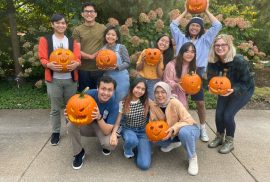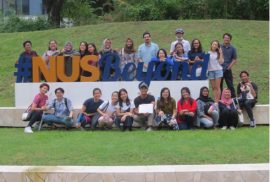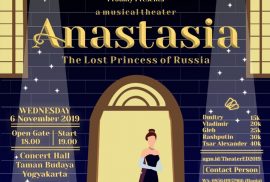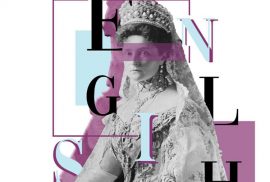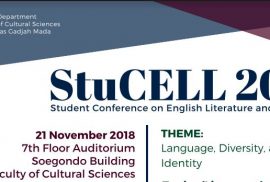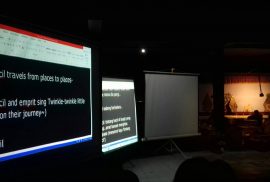Hello, folks! I am Nazra from English Department 2019, and I was awarded the IISMA scholarship during its 2021 pilot project. Here, I have written several bits of reflections that I deem to be notable during my study period in Sapienza University of Rome, Italy.
During my studies, I have always known that I am drawn into the humanities. However, the choice to delve deeper into it wasn’t always available. While I was already satisfied learning fractions of the humanities in English literature, I know that many elements from pure humanities will really contribute to my seeing of the big picture. Therefore, when I was choosing my host university for IISMA, I didn’t have many things to consider; I chose the university that provided the courses that I wanted to study. When I got accepted, there were many things that hindered me, such as unavailability of the courses that I wanted or the clashing timetables. However, I still obtained the majority of what I came there for, and it was such a great experience.
I am extremely grateful for the courses that I took in Sapienza University. I never imagined that I would study Gender Economics at any point in my life, but it turned out to be a really interesting subject to learn. Many famous scholars in the field of gender economics came to the course as guest lecturers in seminars, and their insights on the field contributed to my understanding of the status quo of gender equality. I also learned under the chair of the Global Humanities department in her Critical Theories course, and needless to say I gained comprehensive knowledge on various academic theories that I can apply even in the courses of the English Department at UGM. As silly as it sounds, I finished my study in Sapienza University believing that I could really pursue a degree in the Global Humanities.
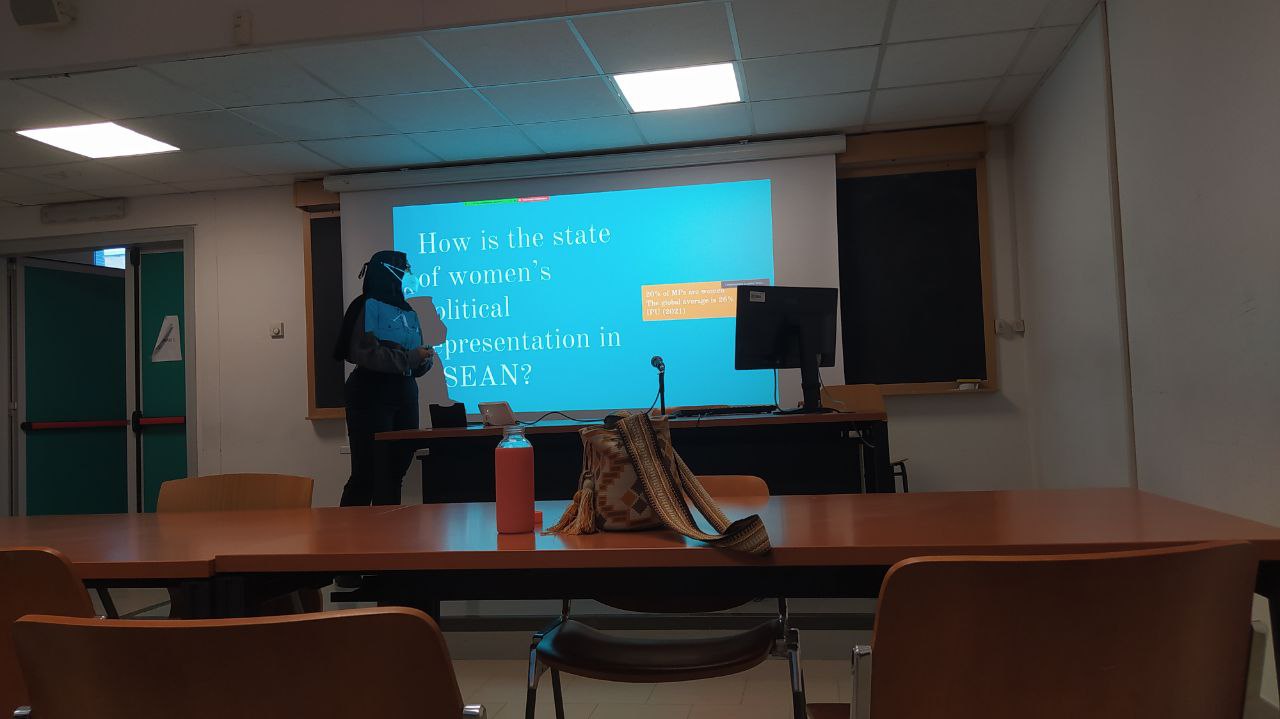
In Italy, many lecturers emphasize the need for oral exams in gauging their student’s understanding of the materials. It will be extremely common to see you or your peers failing exams here and there, but fortunately there’s always another opportunity to make-up for bad scores. Personally, going from studying with paper-based output to one with producing a spontaneous oral end-product is a very demanding chore on my end, as I have to change my whole routine of facing exams and exercises. However, I learned a lot from actually practicing this: my presentation and public speaking skills have grown tremendously better from what it was before. I learned how to communicate my thoughts in a way that my audiences would understand best. The lecturers also taught me that failing an exam isn’t the end of the world; they give you constructive feedback, and would gladly encourage you to attempt another one at a later date.
As I navigate through life in Rome, I am very grateful that I befriended people who are there to have fun with me or assist me whenever I face difficulties. Having friends that are local and international helped me to gain insights from two different viewpoints: my local Italian friends help me get immersed into the Roman lifestyle and taught me the Italian language, while my international friends are there for me to experience new things in the city together. I find people who live in the Mediterranean area to be very warm and welcoming, and I am glad that Italy serves as my entryway when experiencing life in Europe. I think of the connections that I created with my friends in Italy to be real ones, and they have unknowingly become one of my motivations to come back when I have the opportunity to pursue my study in the area.
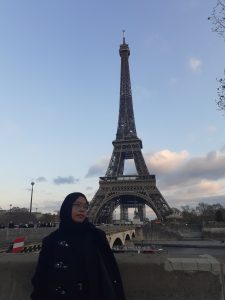 Socializing with my friends became a really positive experience for me. People that I met, most of the time, come from different cultural backgrounds. It had sort of become a habit for me to ask people where they came from when we first met and vice versa. From there on, the conversation would involve the exchange of cultural information: I get to share with them about Indonesian culture, and they would also share with me bits of their own. I find this process really amazing and it definitely has contributed to my current worldview. From IISMA, I get the chance to experience not only Roman culture, but also culture from other countries: my Brazilian friend would host me for dinners, my Pakistani friends would brew me their traditional tea, or my Filipino friend would watch Filipino movies with me. To me, all of these are extremely endearing moments where I can appreciate cultures from various places I have never visited.
Socializing with my friends became a really positive experience for me. People that I met, most of the time, come from different cultural backgrounds. It had sort of become a habit for me to ask people where they came from when we first met and vice versa. From there on, the conversation would involve the exchange of cultural information: I get to share with them about Indonesian culture, and they would also share with me bits of their own. I find this process really amazing and it definitely has contributed to my current worldview. From IISMA, I get the chance to experience not only Roman culture, but also culture from other countries: my Brazilian friend would host me for dinners, my Pakistani friends would brew me their traditional tea, or my Filipino friend would watch Filipino movies with me. To me, all of these are extremely endearing moments where I can appreciate cultures from various places I have never visited.
IISMA has also given me the chance to travel to places I could have only dreamed of before. As the holder of the national visa of a European country, I have the permission to travel around the entire area. This has been a very precious opportunity for me as I get to visit notable museums and monuments. Furthermore, through PPI, I got to befriend several Indonesians living in different European countries I visited. I learned so much from their experiences, and since they live there as the fruit from their academic endeavors, they really inspired me to achieve more in my studies.
My experience at IISMA wasn’t always pleasant; there will be moments where things go a little bit rocky and I have to depend on myself to solve those problems. I have also realized the limitations that I have as a foreigner who stays short-term compared to people who have settled for a long while in the area. Sometimes, it feels as if I am required to learn what I was supposed to learn in a year in the compact timespan of five months. Despite all of that, it is enough for me to be aware that I have grown tremendously from the person I was before IISMA. I believe that this change is for the better. IISMA has delivered me closer to my goals, big or even small ones. And for that, I will be forever thankful.

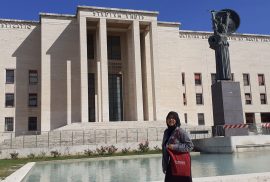
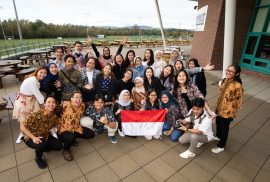
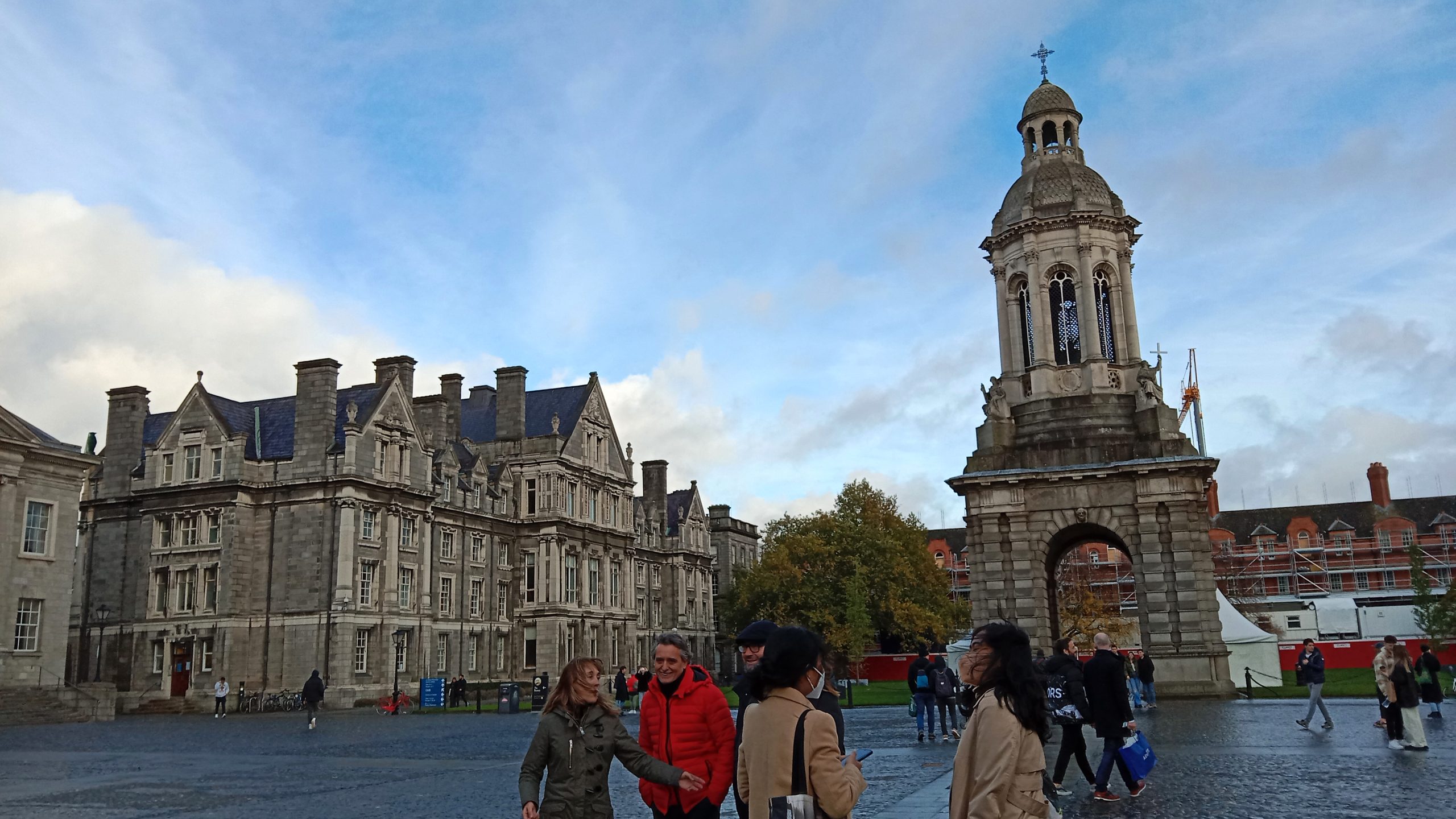
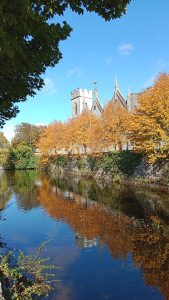 Education is one of the strongest tools you can use to leverage your life. I had heard that phrase all my life, but it wasn’t until IISMA that I finally understood how loaded the message it tried to communicate. I’d been having doubts about whether to pursue graduate study (Master’s) or not, thinking that maybe it simply wasn’t for me, but my semester abroad has changed my point of view. It has cemented my decision that, yes, I will pursue it, preferably sooner than later. Choosing the immediate course of your life, in this instance between pursuing a career or further studies, is by no means something to take lightly. That kind of decision—to take charge of your future education—is a powerful one. Not to mention that undertaking a student exchange gives you a track record that could be useful when pursuing a graduate study.
Education is one of the strongest tools you can use to leverage your life. I had heard that phrase all my life, but it wasn’t until IISMA that I finally understood how loaded the message it tried to communicate. I’d been having doubts about whether to pursue graduate study (Master’s) or not, thinking that maybe it simply wasn’t for me, but my semester abroad has changed my point of view. It has cemented my decision that, yes, I will pursue it, preferably sooner than later. Choosing the immediate course of your life, in this instance between pursuing a career or further studies, is by no means something to take lightly. That kind of decision—to take charge of your future education—is a powerful one. Not to mention that undertaking a student exchange gives you a track record that could be useful when pursuing a graduate study. The third aspect is personal experiences, which cover a lot of grounds. First off, we can’t talk about student exchange without considering international exposure. These days, gaining international exposure is a plus and is especially useful when looking for opportunities such as further studies, fellowships, and jobs. IISMA is one such instance, for it gives the students a mobility program and a fully-funded scholarship to cover it. A prestigious scholarship is one way to leverage yourself among many candidates in any given field. It also opens many opportunities that might not have been there before, such as being invited as a speaker or mentor to various webinars and mentorship programs. The international exposure also makes it easier for you to use it to your advantage when applying for a post that specifically requires it, like in an international event.
The third aspect is personal experiences, which cover a lot of grounds. First off, we can’t talk about student exchange without considering international exposure. These days, gaining international exposure is a plus and is especially useful when looking for opportunities such as further studies, fellowships, and jobs. IISMA is one such instance, for it gives the students a mobility program and a fully-funded scholarship to cover it. A prestigious scholarship is one way to leverage yourself among many candidates in any given field. It also opens many opportunities that might not have been there before, such as being invited as a speaker or mentor to various webinars and mentorship programs. The international exposure also makes it easier for you to use it to your advantage when applying for a post that specifically requires it, like in an international event.